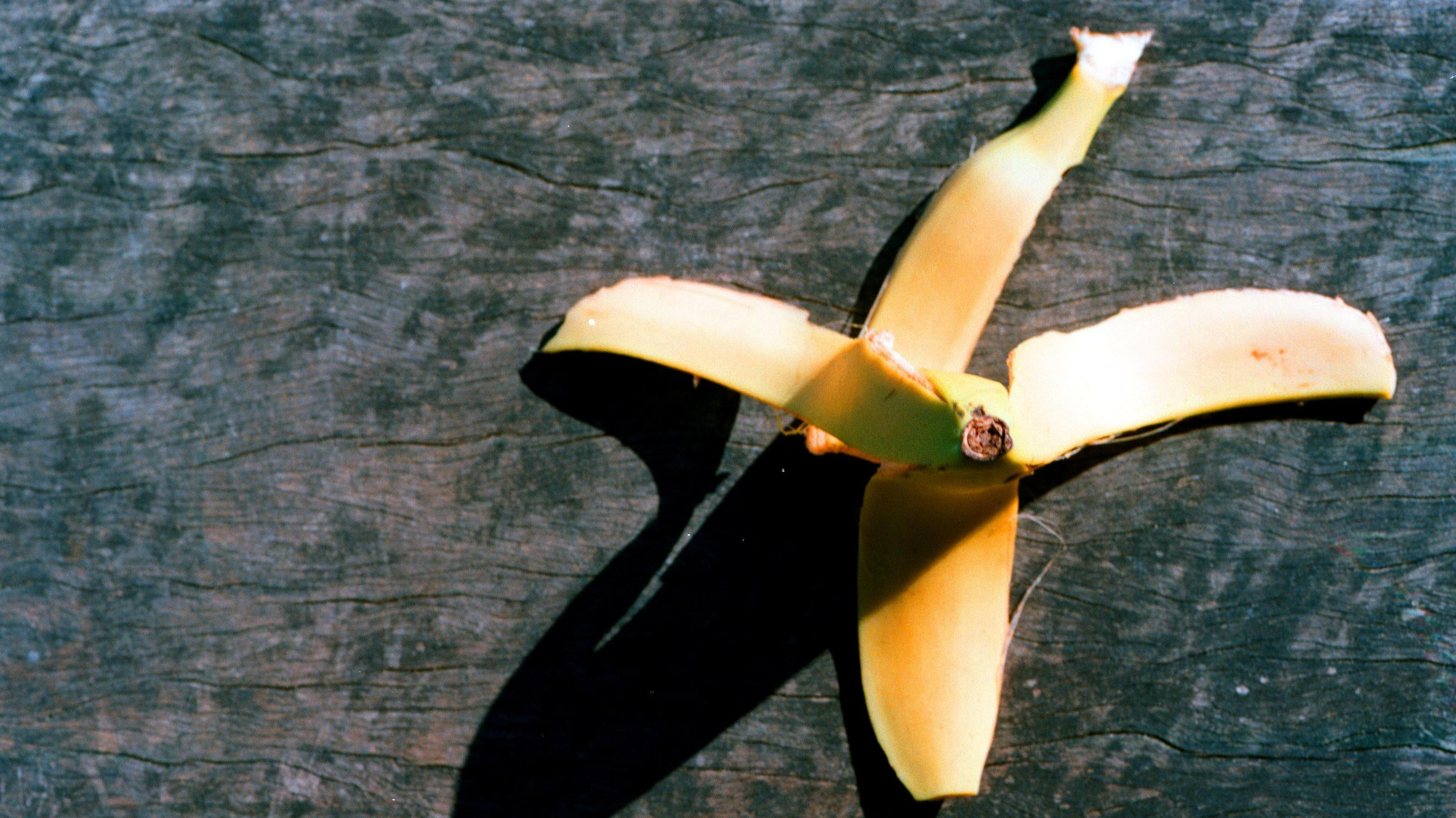Banana Peels Should Be Part Of Your Beauty Routine
How food waste can be used to give you glowing skin.
When I was a kid I loved making my own spa-like face masks with food. A concoction of oatmeal and honey was moisturizing and exfoliating (probably), and whatever wasn't smeared into my pores could make a nice little snack. Home skin scare enthusiasts such as myself have relied on edible topical routines for years, and now beauty brands are getting on board to not only harness the power of food stuffs but take a step toward sustainability in the process.
What is “banana science”?
A recent article from Allure (still my go-to beauty rag) highlights companies that are turning to food waste as a main ingredient in their products, among them Kadalys, a beauty brand that has gone all-in on bananas. The Kadalys site touts "banana science" as the formula behind the products, claiming that oils in banana peels contain essential fatty acids, sterols, and vitamins that help maintain soft, supple, and radiant skin.
It's not the only time banana peels in particular have been tapped for a skin care routine—a recent TikTok trend showed several folks using banana peels as a remedy for under-eye circles. According to a dermatologist who spoke with TODAY, peels in their raw form contain tannins that essentially act as a toner. But what is found in products like those from Kadalys is actually a banana extract that's more easily absorbed into the skin and will offer better results because of it. Similarly, you can chop up a banana peel and mix it with honey, yogurt, avocado, or other skin-enhancing foods for a mask to amp up its raw power.
What makes certain foods good for your skin?
Companies are turning to other typically wasted food ingredients as well. According to Allure, the brand Circumference sources unused olive leaves for a cleanser, and Farmacy infuses discarded blueberry seeds into a night mask. Any edible items that are rich in antioxidants, fatty acids, and vitamins will be good for your skin, Healthline reports, whether you're smearing them on your face or throwing them down your gullet.
Whether you end up supporting the sustainability efforts of brands dedicated to upcycling food waste or creating your own concoctions at home, you're making your carbon footprint at least a little bit smaller—doing the latter rids your garbage of unnecessary beauty product packaging—and your skin will be glowing while you do it.
